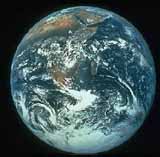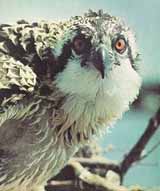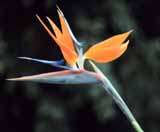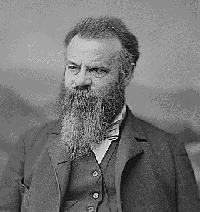|
|
 In 1798
Thomas Malthus (1736-1834) theorized that human population growth was pushing Earth and its resources to
their limits. While we have not yet reached the limits of Earth's
capability to support human activities, our daily activities continue to impact
animals, plants, earth and sky. This site serves as a forum for examination
of the many natural resources of our planet and some of the efforts to protect
them. In 1798
Thomas Malthus (1736-1834) theorized that human population growth was pushing Earth and its resources to
their limits. While we have not yet reached the limits of Earth's
capability to support human activities, our daily activities continue to impact
animals, plants, earth and sky. This site serves as a forum for examination
of the many natural resources of our planet and some of the efforts to protect
them.
| |
|
|
Career
Central
|
Tips, advice and a job list that's updated weekly.
See
it all here! |
|
Help Us
|
E-Pioneer is growing rapidly. We're always looking
for people who can help ...
learn more
|
|
Take The Quiz
|
| We are trying to help people learn about the enviroment. So test your knowledge and take the quiz.
|
|
|
|
|
Animals  From domesticated cats to
mosquitoes we share this planet with animals that rely on many of the same
natural resources as humans for their survival. Animals are important to
us as sources of food, entertainment and as companions. From domesticated cats to
mosquitoes we share this planet with animals that rely on many of the same
natural resources as humans for their survival. Animals are important to
us as sources of food, entertainment and as companions.
Learn more about
this important part of our ecosystem in our Animals
Section!
|
|
Plants
 Some
plants provide such beauty with their appearance that they are planted and
nurtured in yards and gardens around the world while some are valued for their
strength and used in building structures and houses while still others are used
for food or regarded as pests that should be removed. Plants are
ultimately critically important to all life on earth as they are the base of our
ecosystem - the primary producers of our world that change light into usable
energy. Some
plants provide such beauty with their appearance that they are planted and
nurtured in yards and gardens around the world while some are valued for their
strength and used in building structures and houses while still others are used
for food or regarded as pests that should be removed. Plants are
ultimately critically important to all life on earth as they are the base of our
ecosystem - the primary producers of our world that change light into usable
energy.
Learn more about these functional and beautiful organisms in our
Plants Section!
|
|
Earth and Sky  Water, soil and air are integral parts of our
world and we interact with all three every day. Streams, rivers, lakes and
oceans are home to a wide range of creatures, and at the same time they are
routes of transportation for people and materials of all kinds. While everyone
knows water makes plants grow, much of their food also comes from the soil they
grow in. Air is critical to us as we breathe it, dispose of our pollutants
into it and rely on it for our weather and ultimately depend on it to protect us
from the sun's powerful rays. Water, soil and air are integral parts of our
world and we interact with all three every day. Streams, rivers, lakes and
oceans are home to a wide range of creatures, and at the same time they are
routes of transportation for people and materials of all kinds. While everyone
knows water makes plants grow, much of their food also comes from the soil they
grow in. Air is critical to us as we breathe it, dispose of our pollutants
into it and rely on it for our weather and ultimately depend on it to protect us
from the sun's powerful rays.
Learn more about our physical world in our Earth
and Sky Section!
|
|
People  As the dominant species on the planet humans
influence the habitats where they live and their behaviors can impact the
environment even far away. Through-out history there have been individuals
that have dramatically influenced our understanding of the natural world. The
lessons those individuals taught us can be learned in texts and classes today,
but we are all responsible for the condition of the environment both today and
in the future. Actions to protect the natural world can be individual -
such as recycling and reusing goods - or as a group - by shaping public policy
and encouraging others to reduce their impacts on the environment. As the dominant species on the planet humans
influence the habitats where they live and their behaviors can impact the
environment even far away. Through-out history there have been individuals
that have dramatically influenced our understanding of the natural world. The
lessons those individuals taught us can be learned in texts and classes today,
but we are all responsible for the condition of the environment both today and
in the future. Actions to protect the natural world can be individual -
such as recycling and reusing goods - or as a group - by shaping public policy
and encouraging others to reduce their impacts on the environment.
Learn more
about our role in the ecosystem, champions of conservation and actions
individuals can take to help improve the environment in our People
Section!
|

